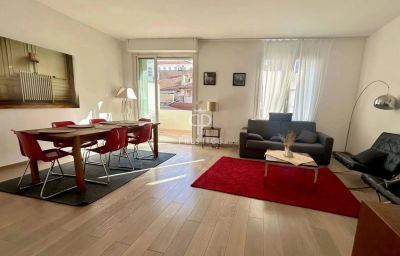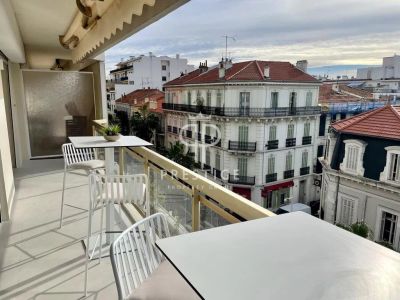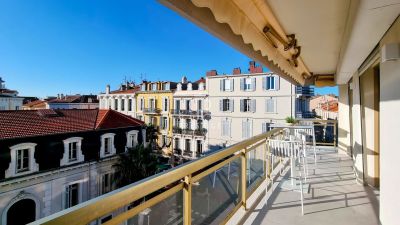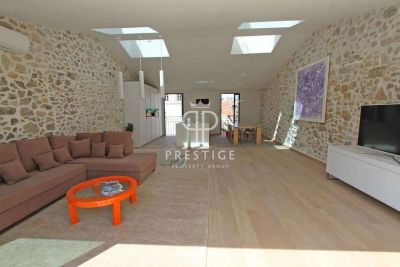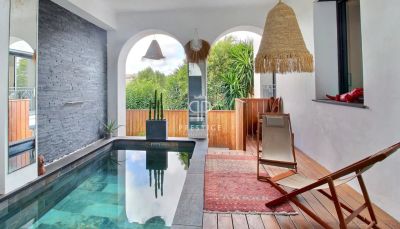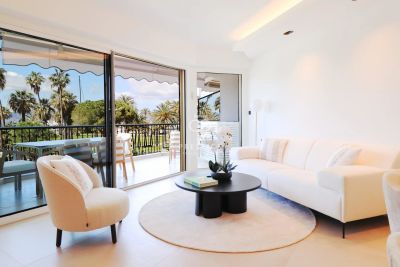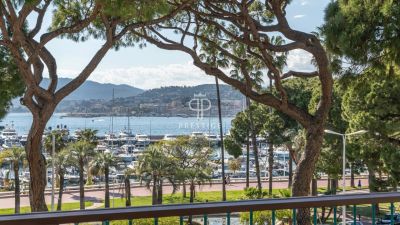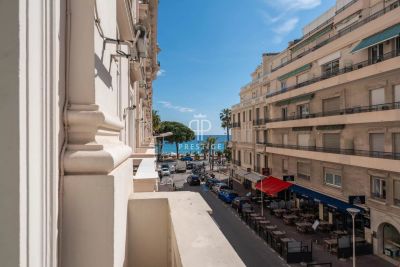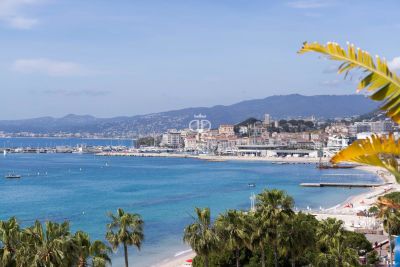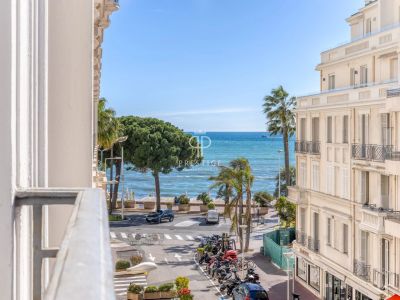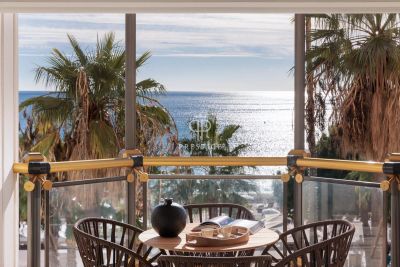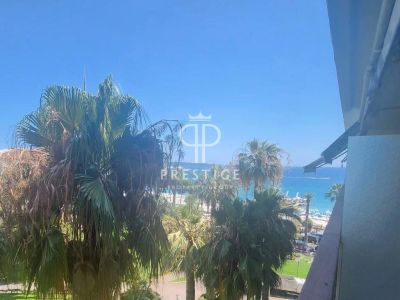Mougins Property
Area Guide
The village of Mougins is located in the Alpes-Maritimes department in the Southeast of France, and just a 15 minute drive from the famously elegant resort of Cannes. Mougins is both picturesque, surrounded by forests and dramatic scenery, and historic, with much of the property in Mougins being full of traditional character. The village itself consists of a great many older houses, lining narrow cobbled streets, dotted with rainbows of flowers and carefully planted trees which provide blissful shade on the hottest of Provencal days. Seemingly around every corner is a statue, both ancient and modern, and all roads in Mougins do not lead to Rome, but rather a spectacular fountain at the very heart of the old town. Property in Mougins is located in one of the prettiest hilltop villages in the area, but has much more to offer than just a beautiful village with spectacular views of the sea, mountains and countryside.
Mougins can boast links to, arguably, some of the most famous names of the 20th century. Pablo Picasso spent the last 12 years of his life living in a property in Mougins, choosing a ‘mas’ (farmhouse) at Notre-Dame-de-Vie. This small hilltop beside the old village is crowned by a 12th century chapel of the same name, and Picasso’s property in Mougins boasts spectacular views across the historic centre and to the Bay of Cannes beyond, which, no doubt, inspired his art. Picasso’s studio can be found in the old village, and possibly the most famous property in Mougins now serves the community as the tourist office. Another property in Mougins that was once a studio is that of Fernand Léger, which is located above what is now the village wine shop.
As with much of the region, food and wine are important to the culture of the area, but few places more so than Mougins, famed, as it is, for its numerous gourmet restaurants. The village hosts the ‘International Gastronomy Festival of Mougins’ ('Les Étoiles de Mougins’) every September, and several famous chefs have managed restaurants in the village. One of the restaurants, L’Amandier, is housed in perhaps the most important property in Mougins, which was the court house of the Monks of Saint Honorat in the Middle Ages, before being transformed into an almond mill in the 18th/19th centuries, leading to the name of the restaurant.
Due to the close proximity of the village to Cannes, many big Hollywood names, both past and present, have been known to frequent the village. Mougins is one of those rare places where luxury and tranquillity combine seamlessly, and much of the property in Mougins can boast of famous names beneath its roof. For many years Elizabeth Taylor hosted charity dinners for the Hollywood elite, and today Mougins is the perfect place to ‘rub shoulders with the stars’.
Property is Mougins is diverse, with large private estates suitable for the Hollywood greats, character-filled farmhouses located in the tranquil countryside, surrounded by pine forests and olive groves, and historic village houses and apartments. Some of the property in Mougins dates to the medieval period, when the village was under the control of the Monks of Saint Honorat. During this period, Mougins was a fortified village, with ramparts and a medieval wall with three gate towers. While many of these fortifications were destroyed in the 18th century, during the War of Austrian Succession, parts of the medieval wall and the Porte Sarrazine gate tower still stand. The old town was substantially extended in the early 19th century, and often village property in Mougins dates from this period, in charming narrow flower-filled streets. One of the attractions of property in Mougins is the spectacular scenery. The 260m height of the village allows 360-degree views over the Côte d'Azur. To the south there are sea views of the Mediterranean and the Bay of Cannes, to the northeast the Maritime Alps provide a stunning backdrop to the village, and to the northwest lies the village of Grasse, famous for its perfumeries and fields of lavender and roses.
In the countryside surrounding the village, property in Mougins can be found near to the beautifully maintained golf courses of the Royal Mougins Golf Resort and the Cannes-Mougins Golf Club. Beyond L’Etang de Fontmerie, which provides a large open area surrounding a small, shallow lake filled with lotus flowers, perfect for strolls and picnics, is the Valmasque Forest, which covers 427 hectares and almost surrounds the village, and is perfect for hiking and horse riding.
Despite the historic feel of the old town, property in Mougins offers a wealth of nearby facilities. As well as the elegant and modern facilities of Cannes, just a short drive away, the village has its own international school, supermarket and small shopping mall to serve the population of almost 20,000. In addition, the village’s connection with famous artists and long history ensure that there are also a great many cultural facilities. The Mougins Museum of Cultural Art was opened in May 2011 and displays a vast collection of Roman, Egyptian and Greek antiquities, alongside modern and contemporary art with a classical theme, including works by Picasso, Matisse and Damien Hirst. Among many other galleries and museums, the Galerie Elegance also exhibits work by French artists, and the long history of the village is arguably best seen by visiting some of the more important historic property in Mougins, such as the 11th century church of Saint-Jacques-le-Majeur in the heart of the village.
Property in Mougins can be easily reached by car, train and bus from Cannes. The nearest airport, Nice Côte d'Azur Airport, is just 18km away, with both domestic and international flights.
Buying a Property in France
1. Signing the Agreement (Compris)
On finding a property you wish to purchase you will need to negotiate the terms, price and conditions of the sale with the owner.
The next step, once you are in agreement, is to sign the preliminary contract (Compromis de Vente). This is a legal document and after ten days will be binding on both parties. Rules change frequently in France and it is best to consult with your notary about when this period starts. Generally the compris will be signed in France with the Agent.
Variants can be included in the compris, for example an Acte (clause) can be added if the name or names to go on the title deed have not been finalised. If a mortgage will be required to purchase the property, the details for this, including the name of the mortgage company, must be on the compris.
2. Paying the Deposit
Generally the deposit will be 10% of the agreed purchase price. This will normally be paid to the notaire. There are exceptions to this, if the agent holds a carte professionelle, is bonded and fully registered then you may pay them, but do not hand over the deposit to anyone else. If for some reason the purchase does not go through, for example, if you write to the notaire and the agent that you do not wish to go continue with the purchase before the contract is binding (within seven days of signing the compris), then your deposit would be repaid. This would also apply if a condition had not been met, or the mayor or S.A.F.E.R. (a government agency that has the right of first purchase on most rural property that comes onto the market in France) could oblige the purchaser to give way. If you decide after the seven days 'cooling off' period that you do not wish to complete the purchase and pull out of the sale you would lose your deposit. If however the vendor pulls out of the sale then you will receive your deposit back plus the same amount from the vendor.
3. On Completion
Generally it will take around two or three months to complete the purchase.
During this time the balance of the purchase money must be paid into the account of the notaire, this must be done well ahead of the completion date. The notaire will prepare the documents, check that the deed of sale (Acte de Vente) is in order and have the legal title ready to be signed over. It is possible to have someone sign on your behalf if you give them power of attorney. An interpreter may be of use at this point if your French is not very good and many Notaires will suggest (or insist) that an interpreter is with you.
